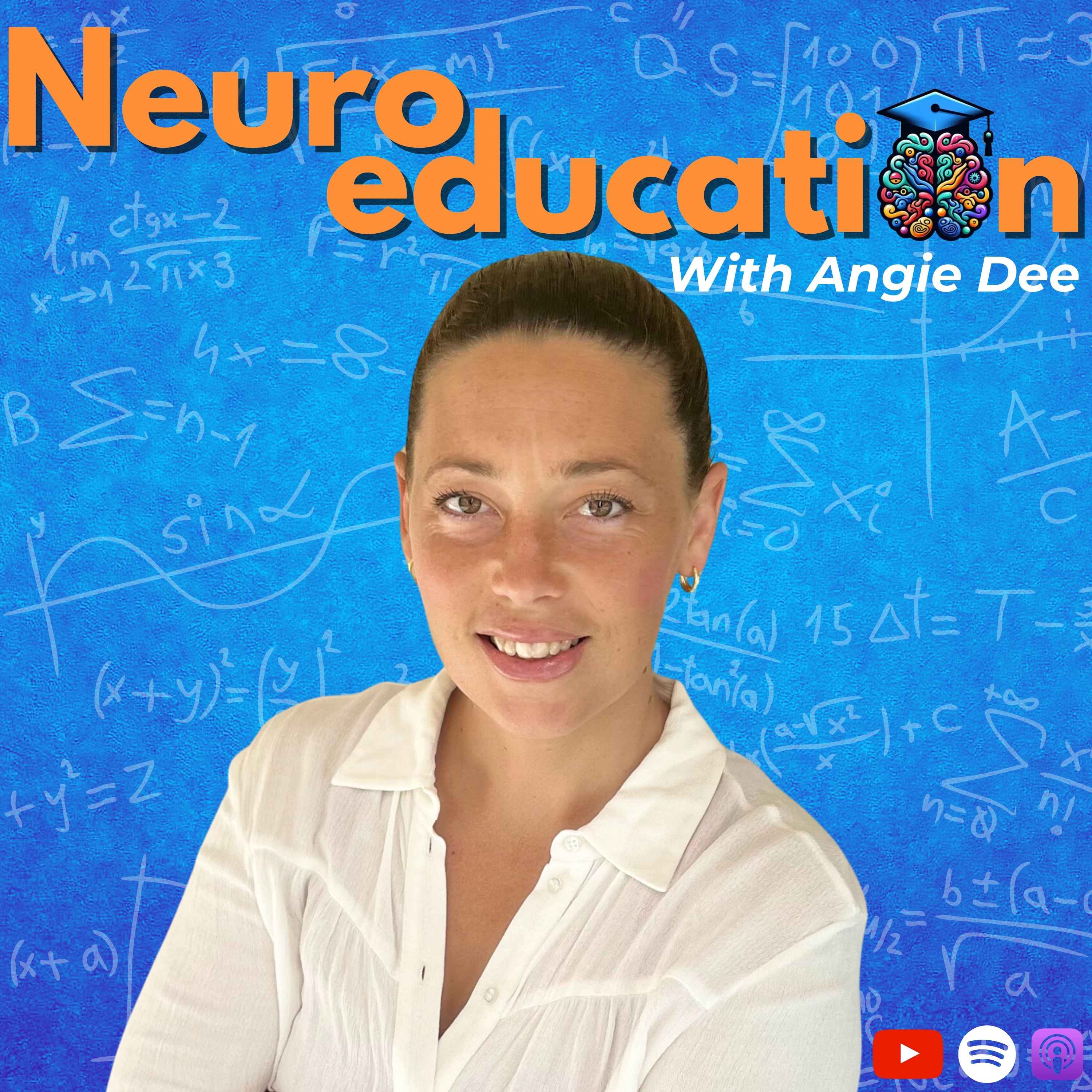#013 - Is Sitting the New Smoking? How Movement Boosts Kids' Health and Learning
Description:
Did you know that sitting all day can be as harmful as smoking? Join Angie Dee in NeuroMovement: The Future of Learning to discover why movement is essential for children’s health and cognitive performance. In this episode, Angie uncovers shocking research linking prolonged sitting to serious health risks and shares practical ways to integrate movement into schools and homes. From real-life classroom strategies to practical solutions to integrate more movement into our children's daily routines.
Join us as we uncover:
- Shocking parallels between the health risks of prolonged sitting and smoking.
- Real-life examples from schools implementing effective movement strategies.
- The impact of movement on cognitive function and academic performance.
- The power of nature play in children’s well-being and academic learning
- Actionable tips for parents and educators to foster a more active and engaging learning environment.
Don't miss this vital discussion on transforming educational practices for a healthier, more dynamic approach to learning!
Transcript
Podcast 13
===
Angela: [:Thank you for listening in. Today we're going to be diving into the topic of
How Sitting is the New Smoking and what we can do to get our children moving!
There was a recent publication that looked at 13 different studies. And these studies were comparing the negative health effects of sitting to smoking and the findings were shocking!
They found that sitting for up to eight hours a day was comparable to the negative effects that smoking has
urs a day, and predominantly [:However, we also have A variety of studies that have different estimates, but one of the estimates that come out of the USA from Kaiser was showing that children aged 8 to 18 are on screens for over 7 hours a day
and in Australia, even younger children were for at least two hours a day sitting or lying down watching screens.
it may be, we are looking at [:What can we do about this? How can we change this? Obviously screen time is up to parents and obviously parents have a lot of pressure on their work schedule and there is many things that come into play.
However, what we can do is look at schools and how much time children are sitting during their academic learning time.
was very rare that children [:Sometimes children are engaged in learning rotations where there is some movement between activities and more hands on learning, maybe with maths rotations. However, the majority of other learning time, especially in the upper years after prep and grade one, the majority of that learning is done
on a chair, at a table, and they're sitting for the entire learning time. And different schools have different expectations for what is appropriate for children. There are a lot of schools that are incorporating things like brain breaks, which I think is absolutely fantastic. And they're instituting more brain breaks.
which involve movement because of the neuroscience is showing how imperative for movement to get brains back online.
o'clock every morning, [: until: I asked at this school said [: practice, but that standard [:Children sitting for this many hours a day and not being active is literally damaging their health.
Yes, we can't see it right here and right now. But we know that smoking drastically affects your chances of getting cancer, heart disease, cardiac failure, all of these things. And
The Educator Australia showed that children aged 5 to 14, Only a quarter of them were getting their recommended one hour physical activity. So that means, even when they are having playtime, let's say at school, they're not moving physically. A lot of children going to the library, also sitting down and talking.
break. Then they're getting [:because there are some schools that do allow that and these children need to be moving. We can make moving more engaging.
The benefits of movement for children are so many and varied and there was an incredible study done through the University of South Australia and they looked at 50 different schools that had been incorporating more nature play and what they found is over 90 percent of teachers said they saw a benefit not only in their mental well being, their emotional well being, but also incredibly in their academic performance.
is really an example of what [:So we can integrate more nature play into the academic learning time, more hands on learning, and. I know there are many teachers that through standard of practice, through a tradition of how it's always being done, that the majority of the learning is done in a chair at a table and it is sedentary.
aria Montessori, the Italian [:How are they the most engaged in their learning? And she saw that movement was key to them learning, being free to move around the classroom, being free to engage in their hands on learning activities, and also to engage with their peers. Social intelligence and social learning goes hand in hand. I talk a lot about how much learning integration and recall is done through the learning pyramid and some of the other studies on learning retention.
hink about movement not as a [:I really hope this encourages you as a parent or a teacher to get your learning out of the classroom. Yes, movement breaks. Yes, brain breaks. But also thinking about how we can integrate learning into action. Thank you so much for listening. Please let me know in the comments what you got out of this episode.
And if you have any other great ideas or suggestions or what you're doing at your school or with your children, homeschooling, let us know!
If you enjoyed this episode, please subscribe
or follow us on any of the social media platforms, TikTok, Instagram, YouTube.
y make a change for children [: